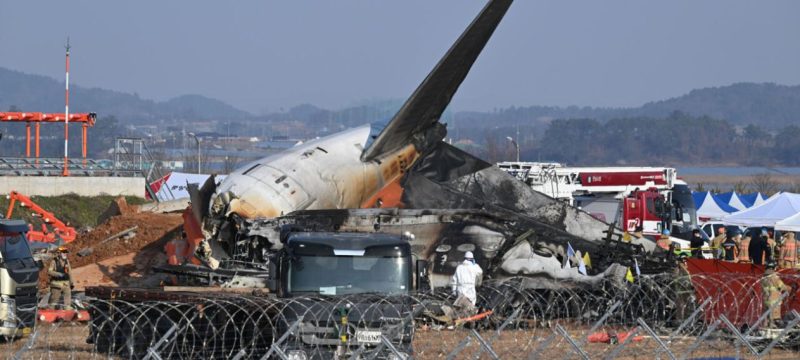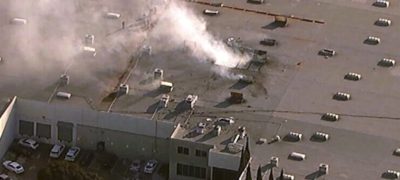A devastating plane crash at Muan International Airport on Sunday morning claimed 179 lives, making it the deadliest aviation disaster in South Korea’s history. Jeju Air flight 7C2216, a Boeing 737-800, had arrived from Bangkok carrying 175 passengers and six crew members when it failed to land successfully.
The crash occurred around 9 a.m. local time (0000 GMT) as the plane attempted to touch down at the airport in southern South Korea. Witnesses reported that the aircraft skidded down the runway without deploying its landing gear, colliding with navigation equipment and a wall before erupting into a massive fireball.
Read more: Putin Apologises to Azerbaijan After Plane Crash Kills 38
The wreckage left the plane nearly unrecognizable, with only the tail section remaining intact. Two crew members were found alive in the tail section and were rushed to nearby hospitals with severe injuries, according to Muan’s fire chief, Lee Jung-hyun.
South Korea’s Ministry of Transport confirmed this incident as the worst air disaster on its soil, surpassing the 1997 Korean Air crash in Guam that killed over 200 people.
Investigations into the Cause
Authorities are investigating the possibility of a bird strike, which might have caused a malfunction in the landing gear. Moments before the pilots issued a mayday, the control tower had issued a bird strike warning. Gregory Alegi, an aviation expert, raised questions about the crash, citing unusual factors such as the plane’s high speed and failure of the landing gear and flaps. The investigation will be conducted by South Korea’s aviation authority, supported by the U.S. National Transportation Safety Board (NTSB) and Boeing. The aircraft, a 737-800 model in service since 2009, was not part of the 737 MAX series, which had faced safety concerns in recent years.
Emotional Aftermath
Grief enveloped Muan airport as families of the victims gathered to identify their loved ones. Most passengers were South Korean nationals returning from vacations, and among the deceased were two Thai citizens, aged 22 and 45. Thai officials confirmed their deaths and assured families of support through the Thai embassy in Seoul. One heartbroken father, whose daughter was among the victims, expressed disbelief as he repeatedly watched footage of the crash, struggling to come to terms with the loss.
Response from Jeju Air
Kim E-bae, CEO of Jeju Air, issued a formal apology for the tragedy and assured full cooperation with the ongoing investigation. He emphasized that the aircraft had no prior safety issues and that the airline would prioritize assisting victims’ families. The crash has brought scrutiny to Muan International Airport, a small but increasingly busy airport that recently began hosting regular Jeju Air flights from Bangkok.
National and International Reactions
The tragedy struck South Korea during a time of political transition, with interim President Choi Sang-mok having assumed office just days earlier. Choi visited the crash site and pledged full government support for recovery efforts and the investigation. Thai Prime Minister Paetongtarn Shinawatra also extended her condolences and confirmed that arrangements for the Thai victims’ families were being facilitated.
This devastating incident has left a nation grieving and raised questions about aviation safety measures at South Korea’s smaller airports.





